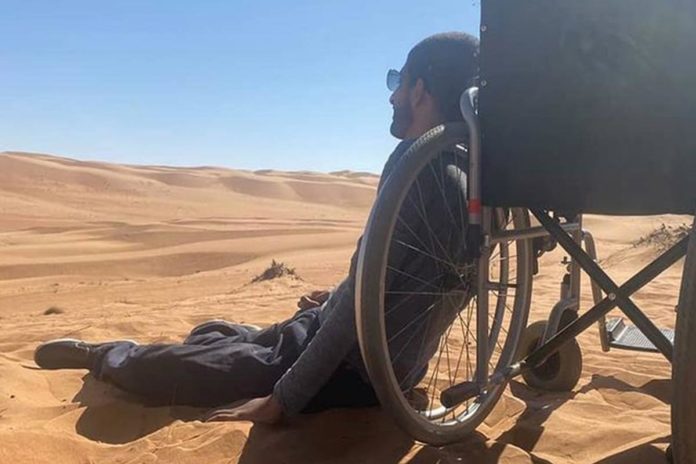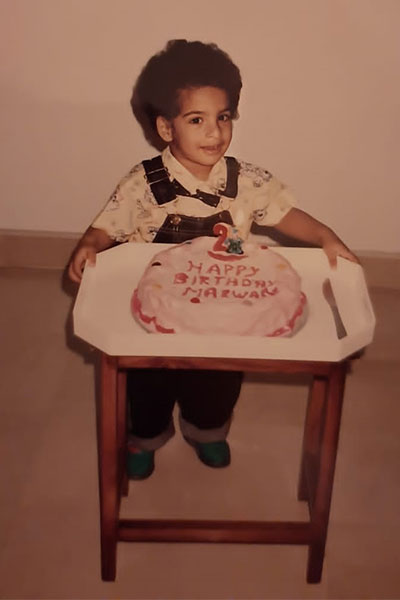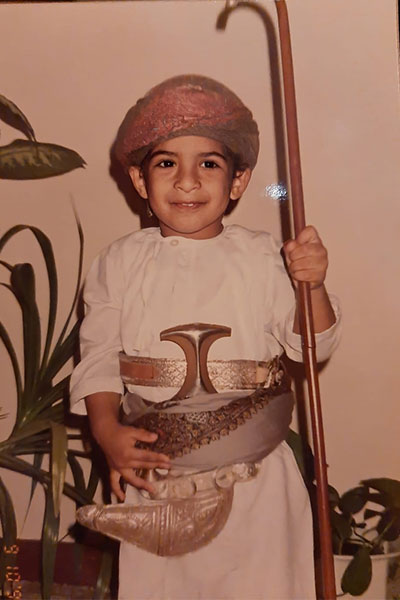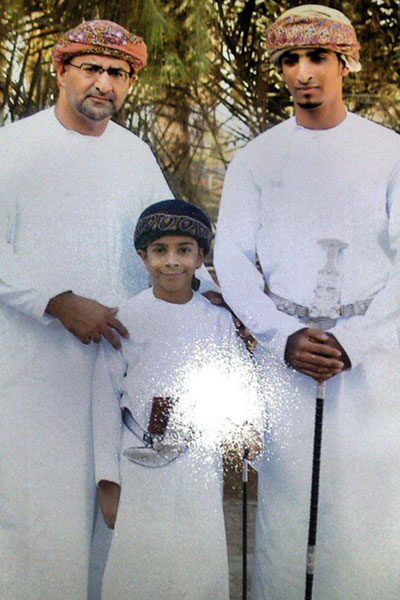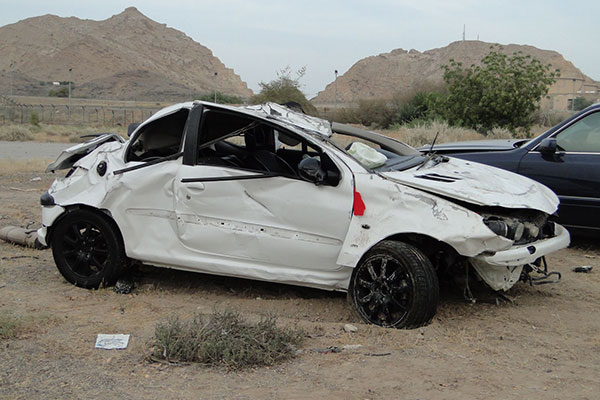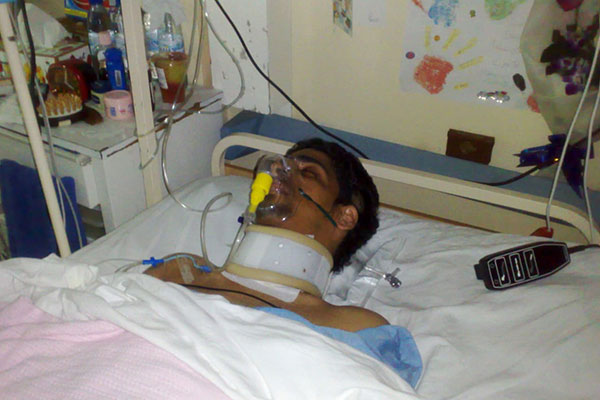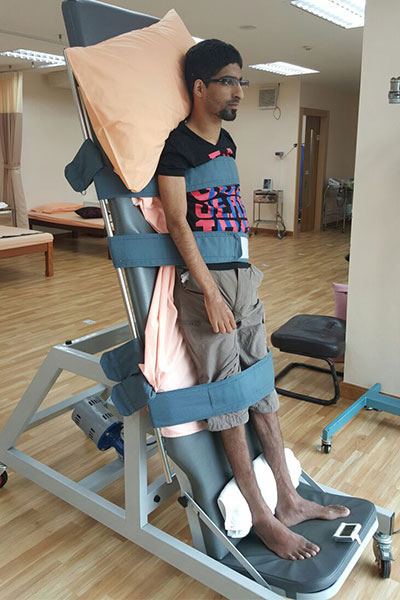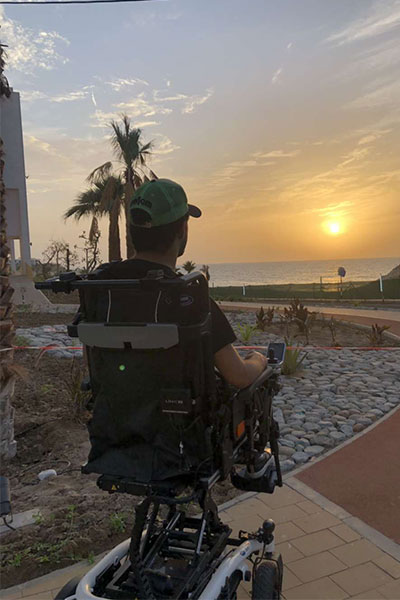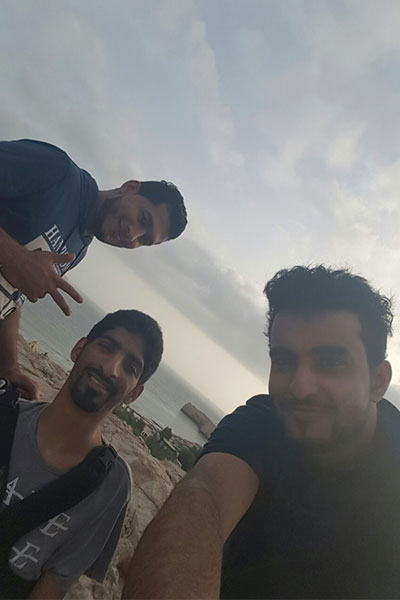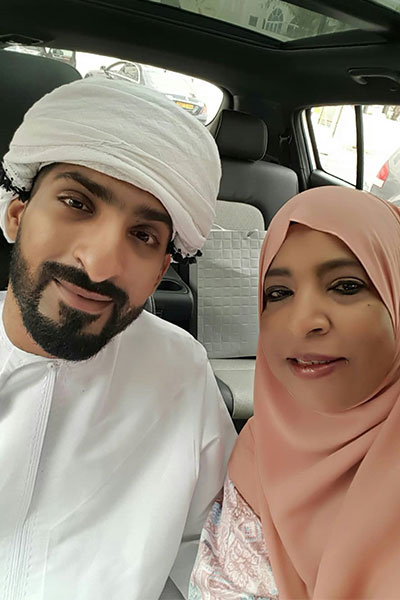It was 10 April 2010, a beautiful day for Marwan Bin Munir Al Kindy. Marwan was just 19 and full of life. He had got a scholarship to join International Maritime College Oman after his school graduation and he was enjoying his two weeks of holiday after his first semester exams of the foundation course.
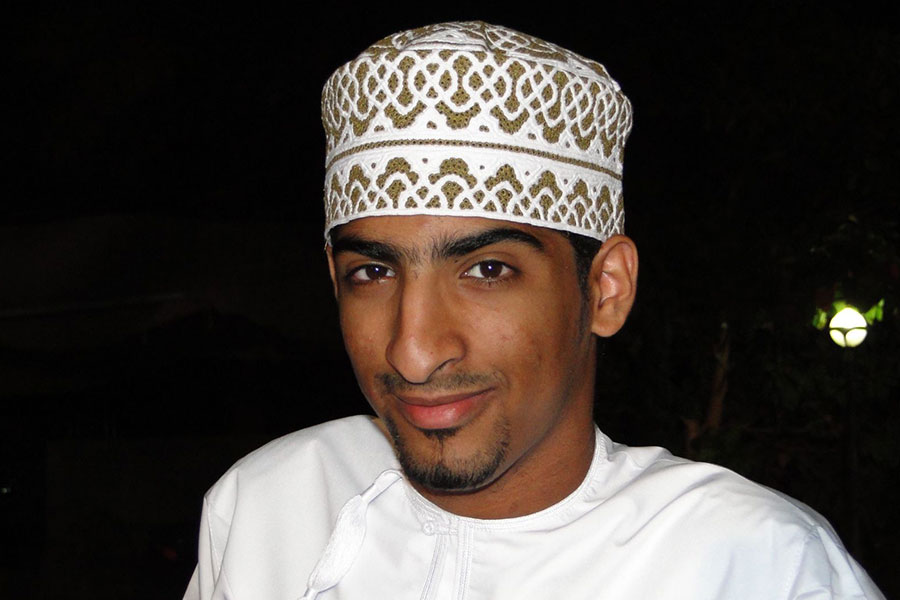
He was driving back after midnight to his home in Al Amerat after a fun day with his friends and relatives in Sarooj. Driving was his passion and he had jumped in joy when he received his driving license. Marwan had a very happy and active childhood. Playing football and going swimming were his favourite pastimes and as a child, he dreamt to become a pilot.
Marwan drove through the road where a bridge was being constructed on the highway near Al Harthy Complex. He had driven through this route several times a day, and he knew it by heart. But everything changed forever that night within the blink of an eye.
“I was coming down the detour, and I was not intoxicated nor driving at high speed. I just remember blinking my eye and next, I remember myself in an ambulance. I remember someone asking me ‘who took you out of the car?’.”
The next thing he remembers is opening his eyes in the Khoula Hospital’s ICU. Later, the police report reconstructed the sequence of the event. Marwan had hit the barricades set on the road and the car had overturned.
“But honestly, I don’t remember it. That specific night, I’m sure I didn’t drive at high speed. I was already past that kind of fun,” he says.
His father recalls he received a missed call at 3.30 am. He felt something was amiss and called up his relatives to know if Marwan had been there.
Marwan believes he actually removed himself from the mangled car, got panicky and called his father. But he passed out quickly after that.
“Imagine, I came out of that mangled car without a single scratch, full with my shorts and flip-flop. But the pressure on my spinal cord was felt after a minute and I passed out.”
After the second day in ICU, he became conscious and could feel only intense pain. Marwan did not feel any sensation of his body except on his face. He was anxious to know whether they had amputated his leg, but after his mom pulled the blankets from him and revealed his legs, he was “relieved. I knew nothing about my condition and in my mind, it was just a matter of time, I will get well soon and return to home.”
So, it was an utter shock to him when he first realised his state after two weeks.
“The physiotherapist had come to take me for the session. I was placed on the wheelchair and my hand slipped down from the armrest. Suddenly the therapist pulled my hand up and put it straight and I noticed that I had no sensation at all. I saw my mother stepping back when she caught my eye. That moment I realised I was paralysed from below my neck. It was horrible! I became violent, I couldn’t accept it. I went into denial.”
The accident left his spinal cord damaged and removed his ability to move. The first few months were complete hell for him and his family. He did not have the heart to cooperate with them and stubbornly made things difficult for them. The doctors advised him to have more treatment as the first two years of the injury are very critical for people with spinal cord injuries. In some cases, it is possible for some to recover some function up to 18 months after the injury.
He was shifted to India for further treatment where he gained mobility in his right arm. He was able to lift his hand to his mouth and his attitude started to change. His major turning point was when he went to a specialist rehabilitation hospital in Riyadh, the Sultan Bin Abdulaziz Humanitarian City.
There, he was taken aback when he met 20 to 27 similar victims of car crashes all in their youth and paralysed. Slowly he began to accept that he was not the only one to have suffered. The rehabilitation centre taught him more about his state and how to handle it.
“I realised that when I looked depressed, it was difficult for everyone. I have a huge role to play, especially to my siblings. I should show them I can still look after them. I decided I’m going to do all the things I had done before, only this time it was different,” says Marwan, now 30.
Today, Marwan still faces his share of challenges but with a smiling face. He can move his arms but not his fingers. He has more ability on his right arm than his left arm. He tries to strengthen his right arm so that he can do activities such as push, grasp, etc. Yet Marwan managed to resume his studies at the College of Banking and Financial Studies and completed his course in Human Resource. He is now working in real estate.
“I resolved to ask help from any person who loved me. Why should I feel sorry for myself? This is a new chapter. I should begin it anew. Not that my old life didn’t matter. I did everything I could. But it was over. It’s not bad to ask for help, a friend or brother who loves me to do something for me. I’d like to show people there’s more to life. There could be people who are in worse conditions than me or have achieved more.”
Apart from his work, Marwan’s typical day consists of exercises, updating himself on the current news, watching TV, and getting to a club in the evenings to socialise. He loves to meet people and interact with them. He feels sometimes they are very curious but he doesn’t mind it. “I’m okay with it. I feel I shouldn’t be avoiding company. I will start a conversation with anyone who smiles at me. They will get to know my story and what I do.”
Marwan is grateful to his family, especially his mom, and his friends, who always stood by him. One of his best moments was when his friend Ghassan Al Zadjali told him laughing, “I don’t feel you are on a wheelchair at all. We DO EVERYTHING together.”
He is also thankful for his friend Asad Al Darmaki, cousin Haitham Al Kindy, and aunt Hanan Al Rumhy who calls him ‘my handsome hero’. “Hanan is my guardian angel. We do everything together,” he says.
Marwan is hopeful about his future. He’s looking to be more independent, seeking to raise issues for disabled people such as discrimination against them, the need for wheelchair facilities in public spaces and creating awareness on their needs.
“You can do everything you want despite your situation. You need only determination and positive thinking. Life goes on. Never stop believing. Be kind to yourself, be kind to others.” he says.
No wonder, the name Marwan in Arabic means ‘flintstone’, ‘strong lion’ or ‘leader’. He will surely live up to it.

